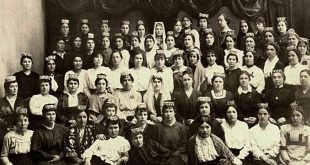A primary school that controversially banned pupils from wearing hijabs appears to have backed down after the chair of governors announced his resignation following complaints from parents.
St Stephen’s primary school in Newham, east London, hit the headlines at the weekend after the Sunday Times reported it had banned Muslim girls under the age of eight from wearing headscarves, to the delight of campaigners who argued it enforces religious conformity on children.
That decision, along with curbs on children fasting on school days during Ramadan, upset many parents, who said they had not been consulted.
On Friday, the school’s chair of governors, Arif Qawi, said he was stepping down, telling colleagues in an email: “I wish the school continued success and am truly sorry that my actions have caused any harm to the reputation of the fantastic school.”
Qawi’s comments regarding “Islamisation” posted on social media attracted sustained criticism, while parents complained that they first heard about the ban through the media rather than the school.
The website for St Stephen’s posted a note on Friday, headlined as a uniform policy update, that read: “Having spoken to our school community we now have a deeper understanding of the matter and have decided to reverse our position with immediate effect.”
Miqdaad Versi, the assistant secretary general of the Muslim Council of Britain, said his organisation welcomed Qawi’s resignation because of his “appalling” statements in support of the ban.
“This decision on religious symbols did not appear to target adherents of other faiths and appears to have been made without consulting the parents or community,” Versi said. “Yet serious questions remain unanswered as to the school leadership’s attitude towards Muslims, which are potentially discriminatory.
“It is deeply disappointing that a primary school with such a reputation has acted in this way. We hope that future decisions are made carefully and with full consultation with local communities.”
 Ijtihad Network Being Wise and Faithful Muslim in the Contemporary World
Ijtihad Network Being Wise and Faithful Muslim in the Contemporary World
